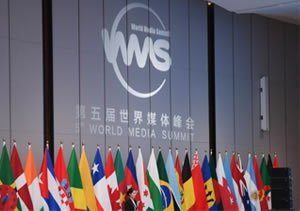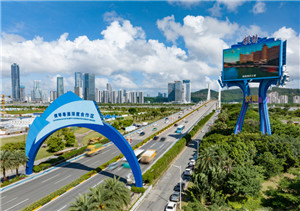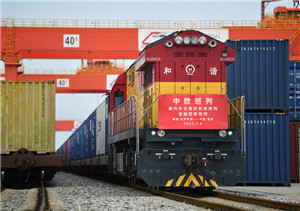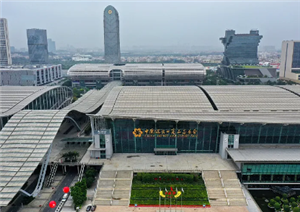The 2024 Summit of the Forum on China-Africa Cooperation (FOCAC) will be held in Beijing from September 4th to 6th. Heads of state, government leaders, and representatives from over 50 member countries of the Forum, along with the Chairperson of the African Union (AU) Commission, the United Nations Secretary-General, and leaders of various international organizations, will gather in Beijing to attend the summit.
Ahead of the meeting, a reporter from the Yangcheng Evening News interviewed Professor Liu Jisen, Executive President of the Institute for African Studies at Guangdong University of Foreign Studies (GDUFS). Professor Liu expressed that the prospects for China-Africa cooperation are vast, and under the goal of "building a closer China-Africa community with a shared future," this cooperation will become a model for China's efforts to build a community with a shared future for mankind.
Challenging misconceptions about Africa
When interviewed, Professor Liu was accompanying a delegation of Guangdong entrepreneurs on an industrial development survey in four West African countries: Côte d'Ivoire, Sierra Leone, Senegal, and Mauritania.
Côte d'Ivoire, a major cashew producer, has limited capacity for deep processing of agricultural products. During discussions with the Ivorian Ministry of Agriculture and Rural Development, the Ministry of Marine and Fisheries, and relevant business associations, it became clear that there is a strong desire for Chinese companies to invest in enhancing the country's cashew processing capabilities. This would add value to their products and increase farmers' incomes. Additionally, Côte d'Ivoire has rich fishery resources but lacks adequate aquaculture technology, producing only about 100,000 tons of fish annually while consuming 650,000 tons, necessitating large imports. "Guangdong is a major province for marine fisheries, and there is significant potential for related companies to invest in Africa, where they are warmly welcomed," Liu said.
Professor Liu emphasized that China can leverage its strengths in technology, capital, and talent to help African countries achieve industrialization and agricultural modernization. Moreover, the experience of Chinese-style modernization can be shared with African nations.
However, many people still associate Africa with poverty and backwardness. Liu argues that China-Africa cooperation should be viewed from a broader and longer-term perspective, and that people should dispel their misconceptions about Africa.
Currently, the world is experiencing profound changes not seen in a century, with the U.S. and its allies attempting to contain China through strategies like "small yards and high fences" and "decoupling." In this context, China's industries and production capacities need to find broader markets. Africa, with a population of 1.46 billion, combined with China, accounts for nearly 2.9 billion people—over 35% of the global population. A company that targets both the Chinese and African markets can tap into two enormous markets. Africa's landmass is 33 million square kilometers, more than three times that of China, and is home to all kinds of mineral resources, such as copper in Zambia, gold in South Africa, and uranium in Namibia. In addition, Africa has abundant oil and gas, agricultural, forest, and marine resources. As a country of over 1.4 billion people, China must ensure resource security and food security to achieve modernization, and its sustainable development depends on utilizing and developing African resources.
Guangdong enterprises lead the way in Africa
Despite various uncertainties in investing in Africa, the opportunities outweigh the risks. Guangdong enterprises, particularly those from the Guangdong-Hong Kong-Macao Greater Bay Area, are at the forefront of Chinese enterprises venturing into Africa, forming the "first echelon" of such efforts.
Professor Liu shared several success stories of Guangdong enterprises in Africa. For example, Shenzhen-based Transsion Holdings dominates the African mobile phone market, earning the title of "King of Mobile Phones" in Africa. Having been deeply involved in Africa for 16 years, Transsion started by selling phones and has gradually expanded into big data. Its early entry into the African market is a key factor in its success, a strategy difficult to replicate for companies now entering Africa.
Liu also noted that many African countries still face severe power shortages. Guangdong Shineng Electric Equipment Group Ltd., a company specializing in power equipment, saw this as an opportunity and successfully introduced small-scale thermal and hydroelectric power equipment to Africa. Guangzhou Sunda International, engaged in trade with Africa, has built an extensive sales network across the continent. As competition intensified, the company shifted its strategy, partnering with Foshan KEDA Industrial Co., Ltd., known as the "King of Ceramic Machinery," to establish manufacturing plants in Africa. They now produce and sell locally, with building material production bases across nearly 10 African countries. "As urbanization accelerates, the demand for ceramic products in Africa is enormous. Trucks often line up for four or five kilometers to pick up freshly made tiles," Liu said.
Bilateral trade is a "two-way journey." Guangdong is China's top province in foreign trade, and each session of the Canton Fair attracts a large number of African merchants to Guangzhou. In terms of cooperation with Africa, Guangdong has unique advantages.
To maximize its "Africa card," Guangdong must start with human resources. Liu suggests, "First, leverage the resources of African consulates in Guangzhou. Before leading the current delegation, we visited the consulates of Côte d'Ivoire and Senegal in Guangzhou, and they attached great importance to our visit, even sending people from the consulates back to their home countries to assist us. Second, utilize the resources of African business associations in Guangdong. They are eager for further cooperation with China. Third, make good use of the overseas students. There are over 6,000 African students in Guangzhou and nearly 10,000 in the whole of Guangdong. These students, once they return home after graduation, will inject youthful energy into China-Africa cooperation."

















